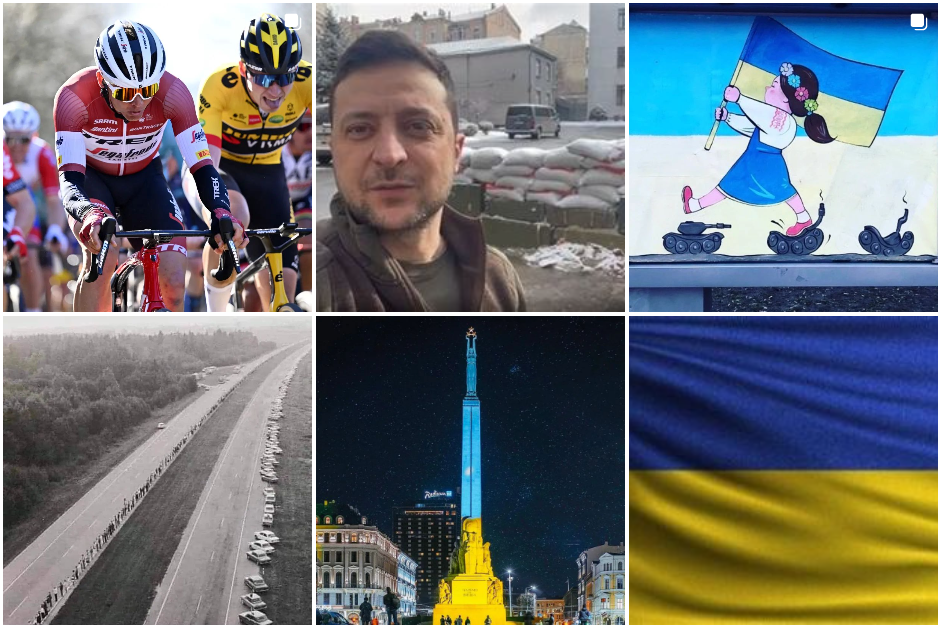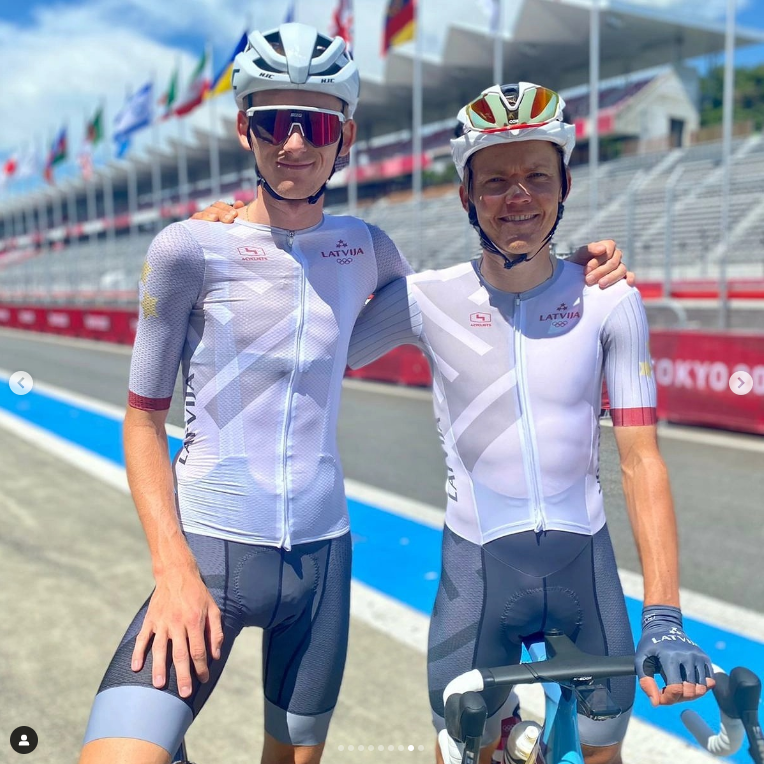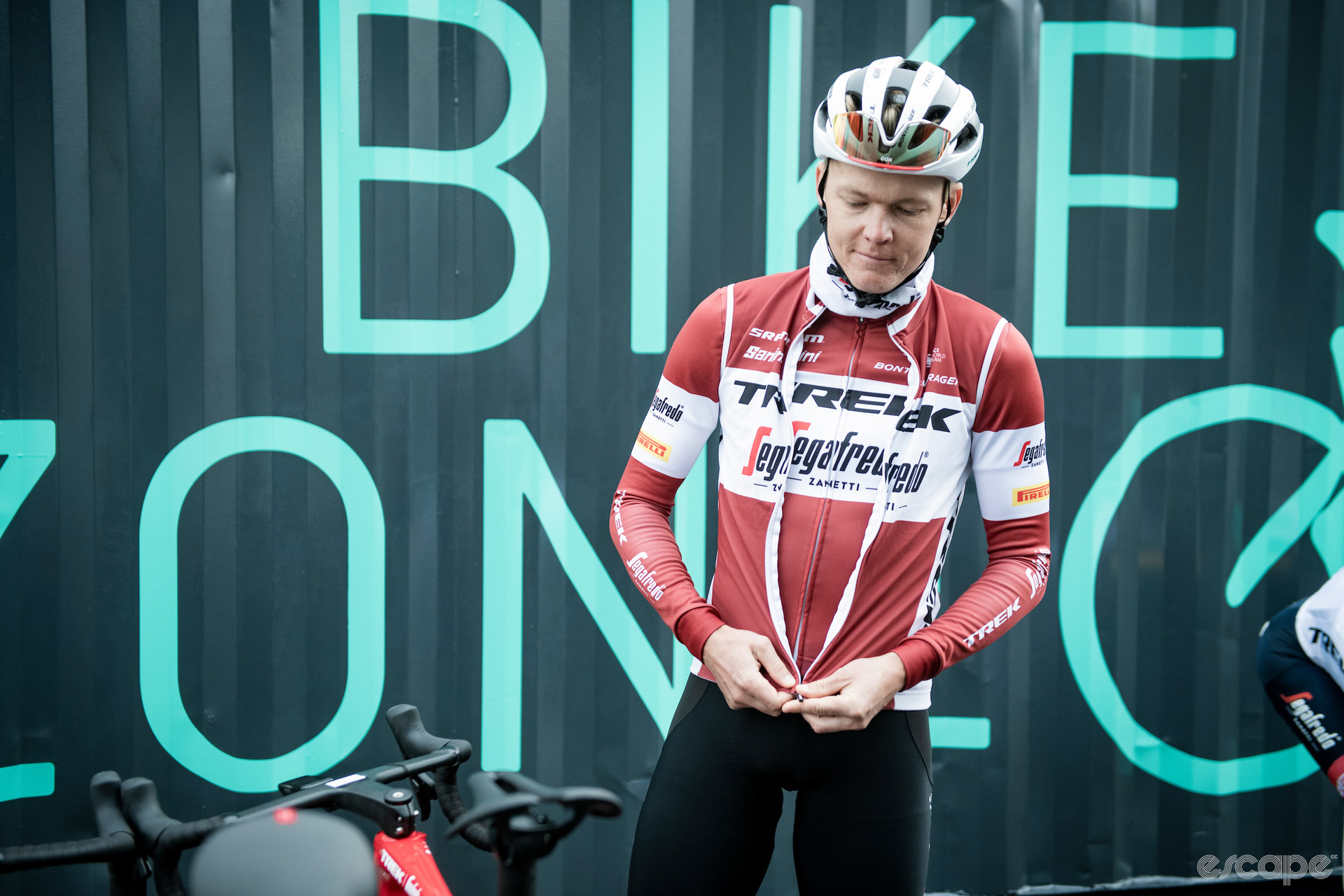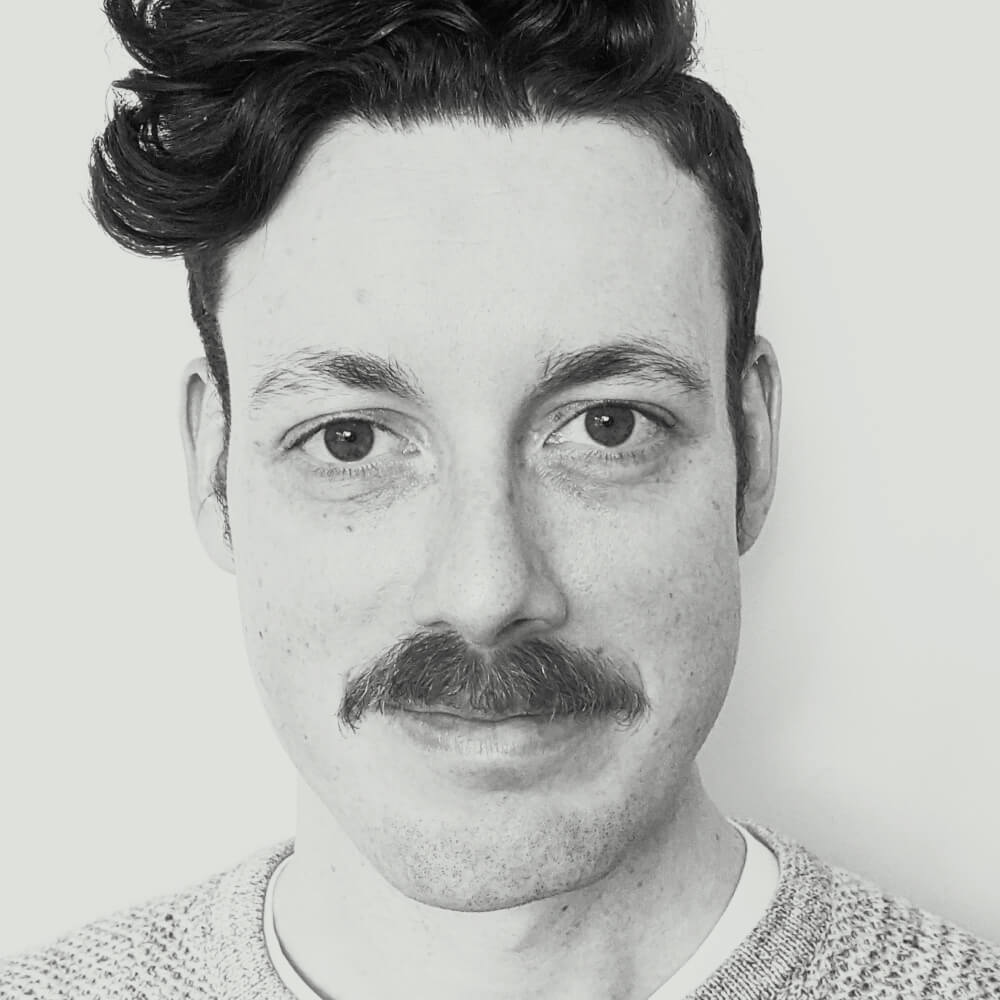As Russia’s invasion of Ukraine has rolled into a second year, cycling and its institutions have continued to struggle with how to respond. The UCI has adopted measures against Russian and Belarusian teams and federations that tracked with the IOC – measures that were quite broad, but, some argue, not broad enough. Against that troubled backdrop of folded teams and immovable oligarchs, cycling rolls on – but for a couple of Latvian cyclists, there have been unexpected speed bumps along the way.
After racing at Strade Bianche, Toms Skujiņš (Trek Segafredo) and Krists Neilands (Israel Premier Tech) received notification that their funding from the Latvian Olympic Committee (LOK) had been cut. Why? Because a Russian cyclist – Aleksandr Vlasov (Bora Hansgrohe) – had also competed, putting the Latvians offside with an LOK ban on competition against Russian and Belarusian athletes.
Latvia, which borders Russia and Belarus and has a troubled relationship with both dating to the Soviet era, is one of Ukraine’s staunchest allies in the conflict. Skujiņš – a two-time Olympian – is one of the most outspoken pro-Ukraine voices in the peloton, so to be punished by his national Olympic committee felt like an affront. In an op-ed for Latvian publication Delfi, Skujiņš explained the reputational wound that had been inflicted on him: the inference that in competing against Vlasov, he and Neilands had been painted as “the bad guys, supporters of war and Russia. Yes, that’s exactly how I see it! For what other reason would the Minister of Education and Science Anda Čakša have advocated the suspension of funding?,” he wrote.

This bubbling disquiet in the Latvian sports community had not just tarred the two cyclists with this brush; tennis player Aļona Ostapenko – the 2017 French Open winner – was also stripped of funding, along with two lesser-known tennis players. (A request for comment from the Latvian Tennis Union went unanswered). For each athlete, the situation was the same – they had unwittingly found themselves in competition against Russian or Belarusian rivals, who were permitted to compete under a neutral flag by IOC guidelines.
For the cyclists, riding for trade teams for most of the year and with limited input in their selection for certain races and who they would be riding against, there was little they could do. Indeed, Skujiņš told me, Russian and Belarusian cyclists “are not competing under ‘any flag’, but in a trade team … starting Strade I had no idea if [the LOK ban] will affect me or not. And honestly I didn’t even know if Vlasov or someone else might be there.” It also forced a wedge between the cyclists and their sources of funding – the trade teams that provide the bulk of their income, and a national identity that is a source of immense pride.
For Skujiņš, it wasn’t about the money; his LOK funding amounts to a modest monthly stipend, and a small annual lump sum for expenses. “Let’s be honest – these funds are not my basic income and I would not be able to provide for the well-being of my family with them,” he said. The way that the discussion around it played out in Latvian government decrees and in the media was much more concerning to him. “It seems ridiculously absurd to me that I have suddenly ended up on the ‘black list’ – because our politicians believe that I am not worthy of the ideology and financial support of the Latvian state,” Skujiņš wrote.
Skujiņš and Neilands turned to the Latvian Cycling Federation (LRF) for advocacy, who in turn contacted the Ukrainian Cycling Federation, the LOK, and Latvia’s Ministry of Education and Science, which had enforced the funding cut. The Ukrainian Cycling Federation had previously communicated their comfort with the Latvian cyclists’ position, stating that they saw no issue with them racing on trade teams against Russian and Belarusian rivals. Indeed, leading Ukrainian cyclist Mark Padun has done just that several times this season already.

Within a few days, the decision had been overturned, with a government statement confirming that funding for Skujiņš, Neilands and Ostapenko would be reinstated. (A request for further comment from the Latvian Olympic Committee went unanswered).
For now, that chapter has ended, but the book opened by Russia’s invasion hasn’t. The war rumbles on, and the IOC has laid out a pathway for Russian and Belarusian athletes to return to competition by the 2024 Paris Olympics. The UCI, which has traditionally followed IOC guidelines rigidly – and is unlikely to rock the boat, seeing as UCI president David Lappartient is an IOC member – has followed suit, citing “the Olympic Movement’s principle of political neutrality”.
For Latvia – and for Skujiņš – that may not go far enough. “As an athlete wearing Latvian colours I not only represent myself, but the country,” he told me. “If the NOC along with the government decide to not compete in [European and World Championships] – even the Olympic Games – I will fully stand with that decision as that will be not only what some politicians decide, but also what the people want.”
With war’s rattle at Latvia’s doorstep and atrocities piling up, there’s an existential threat to the country’s autonomy, and Russia’s conduct in Ukraine shows no signs of improving. War crimes sit alongside sporting crimes, including state-sanctioned doping practices leading to a Russian suspension from the 2018, 2020 and 2022 Olympics. “There were reasons why we didn’t see a Russian delegation at the previous Games and those have not changed, but only gotten worse, so I have no idea how [the IOC] are even considering letting them compete,” Skujiņš said. Even if much of the world is becoming numb to the horrors in Ukraine, Latvia has not.
Nonetheless, the line drawn under the aggressor’s conduct risks becoming faded as time wears on, and Russian and Belarusian actors in the sport have little to lose in pushing for the renormalisation of their position in the peloton. Indeed, it’s already starting to happen – those countries’ flags are now appearing on the bikes and equipment of certain Astana-Qazaqstan riders, in direct and blatant contravention of a UCI ban on such national symbols.
And with each little skirmish – in the Ukrainian war, in the sport’s response to it, in the media, and beyond – the impossible challenge of how to best deal with an awful situation of Russian design becomes a little more apparent.
Disclosure: Toms Skujiņš is the husband of Abby Skujina Mickey, an Escape Collective employee.
What did you think of this story?

